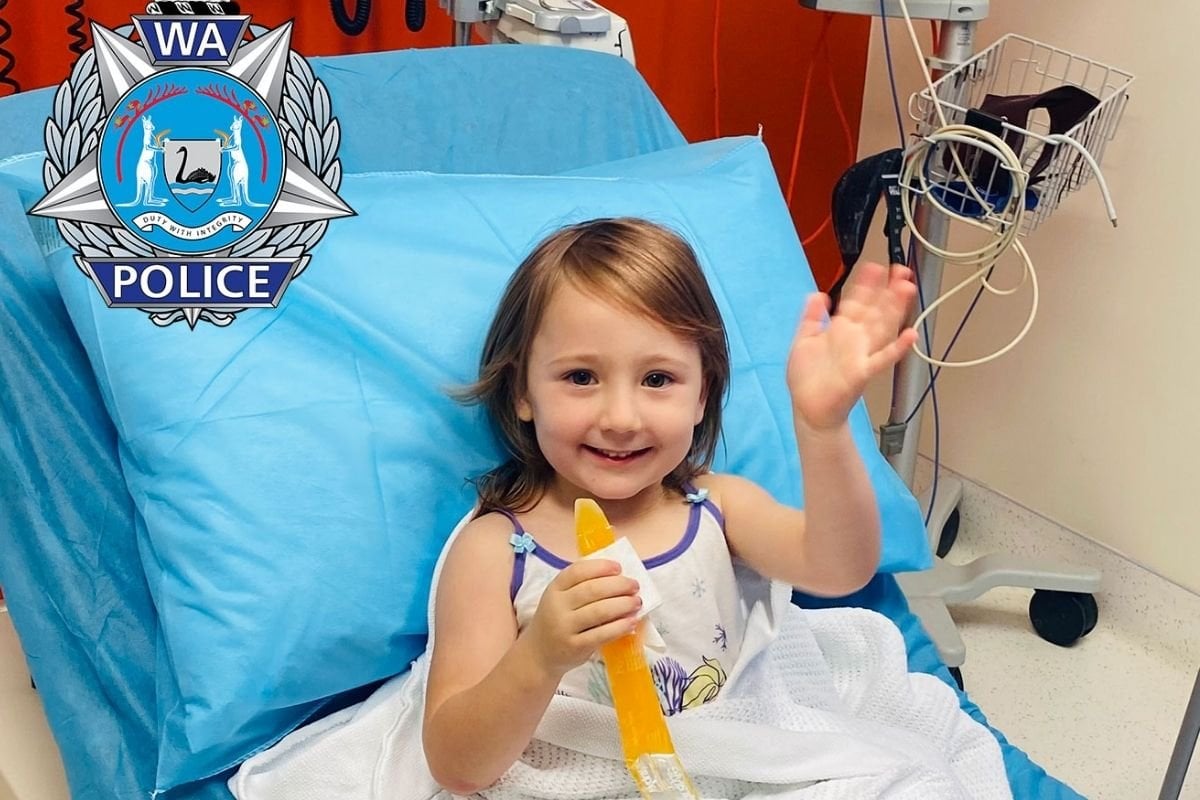
For the past three days, Mamamia, along with every other media publication in Australia, has been reporting on the incredible rescue of Cleo Smith.
The four-year-old girl went missing from her family's tent while camping at the remote Blowholes campsite in Western Australia. Eighteen days later, she was discovered by police in a locked Carnarvon home.
It's an extraordinary story. One that has captured the hearts of not just Australians, but people around the world.
As days turned into weeks after Cleo's disappearance, the worst was feared. Which made seeing her little face in the arms of police officers and smiling from a hospital bed that much sweeter.
Watch: The moment Cleo was rescued.
On Wednesday, we were buoyed by the return of a little girl to her family.
But in the days that have followed, the coverage and comment surrounding this story has started to morph into an all too familiar media circus.
It's starting to feel a bit icky, and as a news journalist who has covered cases like this over the last decade, I can explain why.

Top Comments